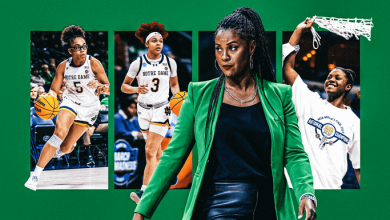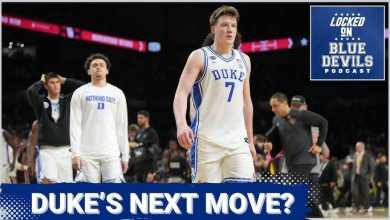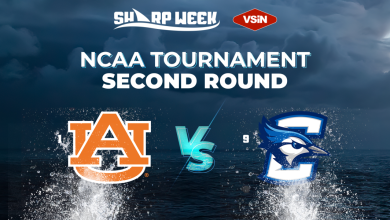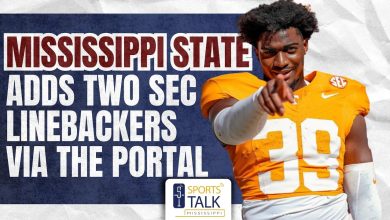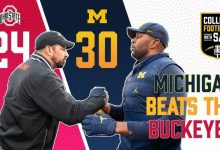Luckett’s Play Sheet: Breaking Down Every College Football Head Coach Hiring.
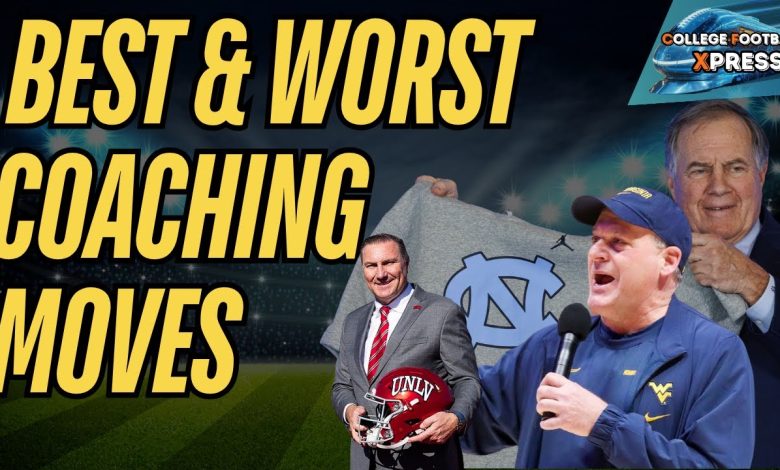
The landscape of college football is continually evolving, with schools constantly making moves to strengthen their programs. Head coaching hires are some of the most significant decisions any university can make, as they have a profound impact on recruiting, team culture, and, of course, on-field performance. Each hire carries its own narrative, shaped by the school’s historical success, regional recruiting trends, and the ever-present quest for a national championship.
This season, college football saw a slew of high-profile coaching changes. These hirings have sparked intense discussion across the sport, with analysts breaking down what each new leader brings to the table. In this article, we’ll break down the head coaching changes that are expected to have the most significant impact across the nation—what these moves mean for the respective programs, what kind of culture these new hires bring, and how they’re likely to impact the recruiting landscape. Let’s dive into it.
1. Deion Sanders at Colorado – A New Era Begins
When Deion Sanders was hired by the University of Colorado, it turned heads everywhere. Known as “Prime Time” for his flashy personality and electrifying career, Sanders’ move to Boulder was one of the most talked-about hirings of the entire college football season. The former Jackson State head coach brings not only a proven track record of success at the FCS level but also unparalleled charisma and marketing power that will instantly raise the profile of the Colorado Buffaloes.
At Jackson State, Sanders took the program from obscurity to prominence, transforming the Tigers into a powerhouse in the Southwestern Athletic Conference (SWAC). His ability to recruit top-tier talent, particularly in the form of blue-chip athletes, is something that Colorado desperately needs. With a unique ability to connect with players, Sanders is likely to shake up the Pac-12 by bringing in talent that might have otherwise shied away from Boulder.
The key question surrounding Sanders is whether his success at Jackson State will translate to the Power Five level. Colorado, historically, hasn’t been a dominant force in the Pac-12, and rebuilding a program in a competitive conference is no small task. However, Sanders’ recruiting ability, along with his experience in turning teams around, has many excited about what’s to come in Boulder.
2. Luke Fickell at Wisconsin – A Long-Term Vision
When Wisconsin hired Luke Fickell away from Cincinnati, it marked a major shift in the philosophy of the Badgers. Fickell, who turned Cincinnati into a College Football Playoff contender, was known for his ability to develop strong defenses and cultivate a winning culture. His hiring signals a shift for Wisconsin, which has historically been known for its physical, run-heavy approach to football.
What makes this hire intriguing is Fickell’s potential to modernize the Wisconsin offense. While the Badgers have traditionally been built around strong running games, the college football landscape is shifting toward more dynamic passing attacks, and Fickell’s ability to recruit and develop dual-threat quarterbacks and high-powered offenses will be crucial in Wisconsin’s future success. His success at Cincinnati proved that he could adapt to the ever-changing college football environment, and if Fickell can bring some of that innovation to Wisconsin, he’ll elevate the program to new heights.
Additionally, Fickell is known for his emphasis on player development and discipline. These are traits that align with the values Wisconsin fans have long cherished. If Fickell can merge those values with a more modern offensive approach, Wisconsin could soon be a national contender.
3. Brent Venables at Oklahoma – Returning to Glory
After years of successful yet ultimately disappointing seasons under Lincoln Riley, Oklahoma brought in defensive mastermind Brent Venables to help restore its defense-first culture. Venables, who has a long track record of success as a defensive coordinator, including his time at Clemson, was viewed as one of the most capable hires in the offseason.
Oklahoma’s defense had been its Achilles’ heel in recent seasons. Under Riley, the offense was elite, but the defense often couldn’t hold up against high-powered offenses in the Big 12 and beyond. Venables’ hiring gives Oklahoma a head coach who understands how to build elite defensive units, something the program has sorely missed.
But it’s not just about defense. Venables has demonstrated his ability to recruit at the highest level, and his coaching staff is expected to emphasize physicality and toughness. While Oklahoma’s offense may not experience as much of a philosophical shift as Wisconsin’s, Venables’ hire represents a return to the fundamentals and a commitment to building a balanced team capable of competing with the nation’s elite programs.
4. Mario Cristobal at Miami – Rebuilding a Sleeping Giant
Miami is a program that has long been considered a sleeping giant in college football. The Hurricanes have the recruiting base and the tradition to be a perennial powerhouse, but the program has struggled in recent years to regain its former glory. Enter Mario Cristobal, a Miami native who took Oregon to new heights before returning home to lead the Hurricanes.
Cristobal’s hiring is significant for a number of reasons. For one, he is an outstanding recruiter, and he knows the South Florida area well, which is a hotbed for college football talent. Cristobal’s success at Oregon, particularly on the offensive and defensive lines, has many believing that he can restore Miami’s physicality and toughness.
Miami is also in the process of rebuilding its facilities and infrastructure, making Cristobal’s arrival a major part of that process. With a solid recruiting foundation, the right facilities, and a strong staff, Cristobal is in a position to bring the Hurricanes back to national relevance. If he can tap into the local talent pool and instill a winning culture, Miami will once again be a threat in the ACC.
5. Brian Kelly at LSU – A Proven Winner in the SEC
When LSU hired Brian Kelly away from Notre Dame, it raised a few eyebrows. Kelly had built Notre Dame into a perennial playoff contender, but his decision to leave a stable program for the high-pressure environment of LSU was a bold move. What’s clear, however, is that Kelly’s success as a head coach—particularly his ability to develop quarterbacks and recruit at a high level—gives him a strong chance to succeed in Baton Rouge.
The biggest question for Kelly at LSU will be whether he can navigate the ever-tough SEC landscape. LSU has a strong football tradition, but the competition within the conference is fierce. Kelly’s experience in big-time programs, however, gives him the tools to compete with the likes of Alabama, Georgia, and other SEC powerhouses. Additionally, Kelly’s ability to connect with players and bring in talent, particularly at the quarterback position, will be key in LSU’s pursuit of an SEC title.
6. Shane Beamer at South Carolina – Building for the Long Haul
Shane Beamer’s hire at South Carolina was met with cautious optimism. While Beamer didn’t have a proven track record as a head coach, his time at Oklahoma and his ability to recruit talent, particularly in the state of South Carolina, positioned him as a good fit for the Gamecocks. Beamer’s emphasis on player development, energy, and building a strong team culture has already begun to show dividends in his short time at South Carolina.
Beamer’s biggest challenge will be to turn South Carolina into a consistent contender in the SEC, where every game is a battle. However, his infectious enthusiasm and commitment to recruiting in-state talent gives the Gamecocks a solid foundation. While the program is likely still a few years away from competing at the top of the SEC, Beamer’s ability to cultivate a positive, competitive culture makes him a coach to watch in the coming years.
7. Hugh Freeze at Auburn – Turning Around a Tumultuous Program
Auburn’s hire of Hugh Freeze was another headline-grabbing move in college football. Freeze, who built a successful program at Ole Miss, has a reputation as an offensive innovator. His ability to recruit and develop quarterbacks will be crucial in Auburn’s attempt to return to relevance in the SEC.
Freeze’s arrival at Auburn follows a tumultuous period for the Tigers, who struggled under previous head coach Bryan Harsin. With Freeze’s offensive expertise and his knack for finding talent in the transfer portal, Auburn could quickly become a sleeper team in the SEC. If Freeze can restore the program’s offensive potency while improving the defense, Auburn could be back on track to competing for SEC championships in the near future.
The coaching changes across college football this offseason demonstrate just how crucial leadership is in the sport. The teams that made bold hires—whether it’s Deion Sanders bringing his “Prime Time” energy to Colorado or Brian Kelly looking to make LSU a juggernaut in the SEC—are all hoping to change the trajectory of their programs.
Each coach brings something unique to the table, but all share a common goal: winning at the highest level. As college football enters another exciting season, these coaching hires will shape the future of the sport. Whether it’s establishing a new culture, rebuilding a powerhouse, or simply maintaining success, the storylines are endless. The “Luckett’s Play Sheet” highlights a thrilling coaching carousel that promises to reshape the landscape of college football in the years to come.



